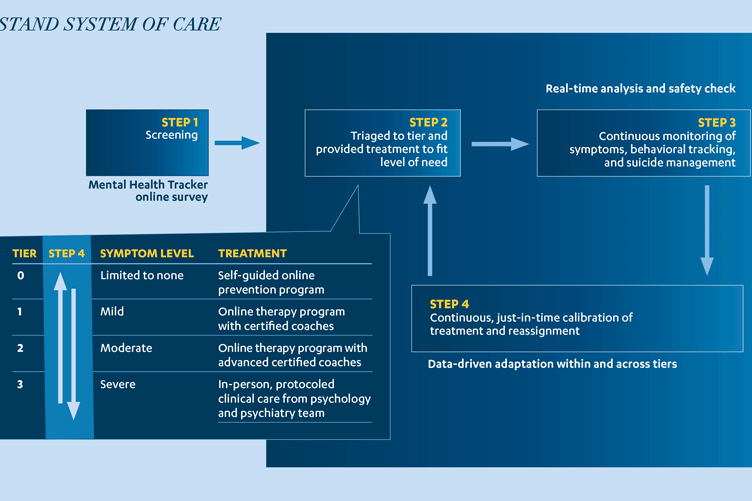What starts at UCLA spreads hope. From breakthrough research to new technologies, discoveries developed on campus reach communities and improve lives far and wide.
The UCLA Depression Grand Challenge (DGC) is poised to follow the pattern. Worldwide, 300 million people suffer from depression, but fewer than half receive treatment. Furthermore, rates of depression are rising fastest among teens and young adults.
Pioneering Care
In response, the DGC developed the Screening and Treatment for Anxiety and Depression (STAND) Program, using online screening and mobile technology; tiered, evidence-based treatment; and ongoing assessment to deliver personalized care to more patients. The unique model made UCLA the first university to offer screening for students and immediate connection to appropriate levels of care.
Taking the Next Step
Now further upgrades are on the horizon, thanks to $2 million from Dunard Fund USA. The gift is enabling the DGC to incorporate real-time symptom and behavior tracking; new modules for sleep and substance use disorders and assessing diet and environmental influences on depression; and extra resources for translating materials, training coaches, and exploring linking participants to social services.
Expanding to the City
The DGC plans to roll out STAND 2.0 in 2020 among a new population: Los Angeles community college students. Students at community colleges face risk for severe depression at least twice that of students at four-year colleges. If STAND 2.0 is anything like its first phase — which has screened more than 6,000 students; offered treatment to nearly 2,000; and responded to 600 suicide risk alerts since 2017 — it will help meet immediate needs while moving the DGC one step closer to cutting the global burden of depression.
The effort is another example of UCLA taking a stand to improve lives with the help of philanthropy.
To learn more, contact
Qjaquice Brantley • 310-968-3097
Published December 2019

The STAND system of care uses online screening and mobile technology; tiered, evidence-based treatment; and ongoing assessment.



